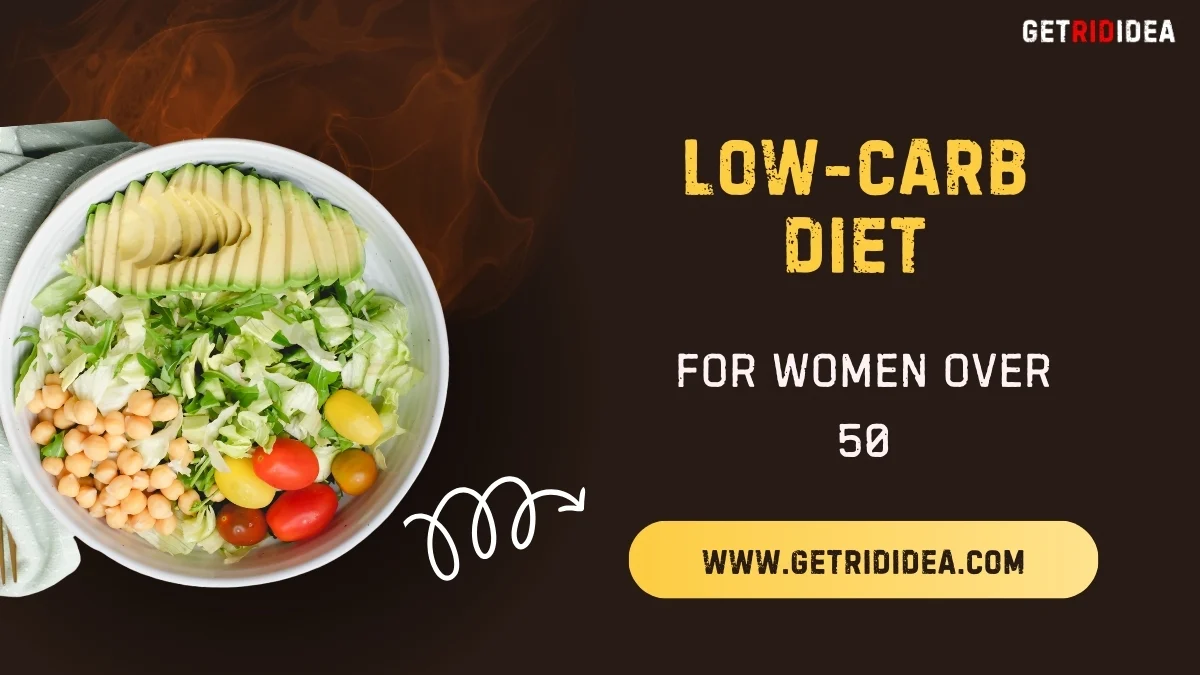As women age, their nutritional needs change, and a low-carb diet may be an excellent option for maintaining health, boosting energy, and managing weight. For women over 50, adopting a low-carb diet can offer numerous benefits, from improved metabolic health to better weight management. But how exactly does this diet work for women in this stage of life, and what makes it particularly beneficial? Let’s dive into the science and practical tips for embracing a low-carb lifestyle after 50.
- 0.1 Why Women Over 50 Should Consider a Low-Carb Diet
- 0.2 Low-Carb Diet for Athletes: Boost Performance & Improve Recovery
- 0.3 Key Benefits of a Low-Carb Diet for Women Over 50
- 0.4 How to Get Started with a Low-Carb Diet After 50
- 0.5 Conclusion
- 0.6 Further Reading:
- 0.7 Related posts:
- 1 Low-Carb Diet for Diabetics: The Ultimate Guide to Managing Blood Sugar Naturally
- 2 Transform Your PCOS Management: Discover the Power of a Low-Carb Diet
- 3 Low-Carb Diet and Thyroid Health: Benefits, Risks, and What You Should Know
Why Women Over 50 Should Consider a Low-Carb Diet
As women enter their 50s, hormonal shifts due to menopause, a slower metabolism, and other age-related changes can make it more difficult to maintain a healthy weight or feel energized throughout the day. A low-carb diet can effectively address these challenges by providing a balanced approach to nutrition and supporting overall well-being.
1. Managing Weight and Metabolism
With age, metabolism naturally slows down, and weight gain becomes more common. The hormone shift, particularly a decrease in estrogen during menopause, also contributes to the accumulation of abdominal fat. A low-carb diet can help by reducing the intake of processed carbs and sugars, stabilizing blood sugar levels, and promoting fat-burning over sugar. This can lead to better weight management and reduced visceral fat, a common issue for women over 50.
Studies show that low-carb diets can be effective for weight loss, particularly in the abdominal area, which is often more resistant to fat loss as we age.
2. Better Blood Sugar Control
As women age, the risk of developing insulin resistance and type 2 diabetes increases. A low-carb diet can help manage blood sugar levels by reducing the intake of refined carbs and sugars, which are the primary culprits in causing blood sugar spikes. By stabilizing blood sugar, a low-carb diet can also reduce the risk of developing type 2 diabetes, which is more common in women over 50.
3. Improved Hormonal Balance
Menopause brings a variety of hormonal changes that can affect mood, energy, and sleep patterns. A low-carb diet can help manage some of the symptoms associated with hormonal imbalances. For instance, stabilizing blood sugar through a low-carb diet can help reduce mood swings, prevent energy crashes, and promote better sleep quality.
Additionally, a diet rich in healthy fats and proteins, common in many low-carb diets, may support the body’s production of hormones and reduce inflammation, which is particularly beneficial during menopause and beyond.
4. Enhanced Heart Health
Heart disease is the leading cause of death for women, and the risk increases after menopause. A low-carb diet can improve heart health by reducing triglyceride levels and increasing HDL (good) cholesterol. Additionally, by decreasing insulin resistance and inflammation, a low-carb diet may help lower the risk of cardiovascular diseases, which is a growing concern for women over 50.
Studies have found that low-carb diets can significantly reduce the risk factors for heart disease, including lowering blood pressure and improving cholesterol profiles.
Key Benefits of a Low-Carb Diet for Women Over 50
1. Weight Loss and Fat Burning
As mentioned earlier, weight management is one of the main benefits of a low-carb diet. Women over 50 often struggle with weight gain due to hormonal changes and slower metabolism. By reducing carb intake, the body shifts from burning sugar to burning fat, which can help shed unwanted pounds. Furthermore, the diet helps keep insulin levels low, encouraging the body to use stored fat for energy instead of storing it.
2. Better Bone Health
Osteoporosis is a concern for many women after 50, and adequate nutrition is key to bone health. A low-carb diet with nutrient-dense foods like leafy greens, fish, and healthy fats can provide the vitamins and minerals needed for strong bones. A healthy diet can also help reduce inflammation, weaken bones, and contribute to osteoporosis.
3. Cognitive Function and Mental Clarity
Many women in their 50s experience brain fog or memory lapses, which can be caused by hormonal changes or stress. A low-carb diet can improve cognitive function by stabilizing blood sugar and reducing inflammation in the brain. In fact, the ketogenic aspect of a low-carb diet, which focuses on healthy fats for fuel, has been linked to improved brain function and memory.
4. Reduced Inflammation and Joint Pain
Inflammation increases with age and can contribute to joint pain, arthritis, and other chronic conditions. A low-carb diet, particularly one rich in anti-inflammatory foods such as fatty fish (salmon, mackerel), nuts, seeds, and olive oil, can help reduce inflammation in the body. This can lead to less joint pain and greater mobility, which is crucial for staying active and healthy as you age.
How to Get Started with a Low-Carb Diet After 50
If you’re over 50 and considering adopting a low-carb diet, here are some practical tips to get started:
1. Gradually Reduce Carbs
Instead of drastically cutting carbs immediately, consider gradually reducing your intake. Start by cutting back on refined sugars and processed foods. Then, move to reduce starchy vegetables, grains, and legumes while increasing your intake of healthy fats and proteins.
2. Focus on Nutrient-Dense Foods
Ensure your low-carb diet includes plenty of nutrient-dense foods rich in vitamins and minerals. Incorporate foods like leafy greens, berries, lean meats, fatty fish, eggs, nuts, and seeds into your meals. These foods will provide you with the essential nutrients needed to support overall health.
3. Stay Active
Physical activity is important at any age, especially for women over 50. Regular exercise, including strength training and cardiovascular activities, can complement your low-carb diet by helping you maintain muscle mass, bone density, and metabolic health. Aim for a combination of strength training, walking, or other forms of moderate exercise.
4. Hydrate and Get Enough Sleep
Staying hydrated and getting adequate rest is essential for overall health. Dehydration can be a side effect of transitioning to a low-carb diet, as the body may expel more water while burning fat. Make sure to drink plenty of water throughout the day. Also, ensure you get enough sleep to allow your body to recover and support hormone balance.
Conclusion
Adopting a low-carb diet after 50 can be a game-changer for women looking to manage weight, improve metabolic health, reduce inflammation, and support overall well-being. By focusing on nutrient-dense foods, balancing healthy fats and proteins, and staying active, women can thrive in their 50s and beyond with energy, vitality, and a reduced risk of age-related health issues.
Calls to Action:
- Ready to embrace a low-carb lifestyle? Download our free meal plan and start your journey to better health today.
- Looking for expert guidance? Schedule a consultation with a nutritionist to create a personalized low-carb diet plan for your needs.
Further Reading:
- “The Effect of Low-Carb Diets on Health and Wellness,” Journal of Nutrition and Aging.
- “Low-Carb Diets and Hormonal Health in Women.” International Journal of Women’s Health.
- “The Impact of Diet on Bone Health in Postmenopausal Women,” Journal of Clinical Endocrinology & Metabolism.


